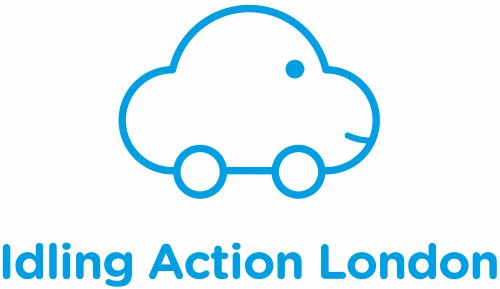The health, safety and wellbeing of construction workers has been a focus of government and employer attention in recent years because of its critical importance to preventing accidents. A sign of the success of this focus is that fatal incidents in the sector are now at their lowest level.
Opinion
Self-employed construction workers need better mental health support
However, one area which has only recently received closer attention is the mental health of the sector’s workers. The picture here reveals serious cause for concern and immediate action is required.
For example, Office for National Statistics (ONS) data shows that more than 1,400 construction workers took their own lives between 2011 and 2015. Indeed, the rate of suicide among construction workers is more than three times the national average for men, equating to more than two construction workers taking their own life every working day.
The mental health challenges facing self-employed construction workers, sole traders and those working in so-called ‘micro-firms’, such as SMEs, is arguably the least well-known aspect of this problem.
The Institute for Employment Studies (IES) and Mates in Mind have been working together to explore in more detail the mental health challenges and the support needed among this group. With generous funding from the B&CE Charitable Trust, we recently conducted a survey to explore the current experiences and future mental health needs of the self-employed and those working for micro firms.
The results are concerning and continue to reveal the silent epidemic of mental ill health within the construction industry, which threatens the viability of a major sector of the UK economy and the prospects of many of those who work in it.
From the more than 300 responses we received to our online survey, we found a third have been experiencing severe anxiety. We discovered the main sources of stress and anxiety are heavy workloads, a lack of control, problems with colleagues, excessive work stress and family and financial worries.
 Sarah Meek, managing director of Mates in Mind
Sarah Meek, managing director of Mates in Mind
As a result of these concerns, over 40 per cent have considered quitting or changing their job, over a third admitted to consuming more alcohol and 17 per cent were taking non-prescription drugs.
Worryingly, fewer than one in five feel comfortable talking to their GP about their poor mental wellbeing, 13 per cent have considered self-harm and just 13 per cent have considered counselling.
Reluctance to seek professional help
Furthermore, we have been concerned to find in both the survey and follow-up interviews with some of the respondents that so many construction workers are finding it hard to disclose a mental health problem.
This is causing them distress, such as loss of sleep, and leading to them to display greater irritability with colleagues and family members. It is also a concern that so few workers are comfortable sharing their concerns with their GP or other formal sources of support, preferring to rely on family members or friends, on the occasions when they do seek help.
 Stephen Bevan, head of HR research development at the Institute for Employment Studies (IES)
Stephen Bevan, head of HR research development at the Institute for Employment Studies (IES)
Our interviews confirm this reluctance and reinforce the concern that admitting to mental health issue carries a pervasive stigma and this is one of the factors preventing workers from feeling able to seek professional support.
Despite some proactive work on building awareness of mental health issues and seeking to end the stigma about mental health problems being conducted by many of the larger construction businesses in the UK (including supporter organisations working with Mates in Mind), it’s clear the wider industry and its various stakeholders needs to do more to reach the smaller operators via supply chain initiatives.
This research is helping Mates in Mind and IES to understand how more targeted interventions to reach the self-employed can be developed and plans are being made to develop tailored support materials to fill the gap in provision which our study has identified.
Mates in Mind continues its mission to address the stigma around work-related stress and poor mental health and to support organisations to create a positive environment in the workplace so workers feel comfortable disclosing a mental health problem and seeking help and support. We continue to educate and inform teams, including line managers, through tailored training so all employees understand their roles and responsibilities when it comes to supporting and looking after their own and their colleagues’ mental wellbeing.
However, to properly support the mental wellbeing of workers in industries like construction, it is not enough to simply provide workers with advice and training on how to respond to a mental health crisis once it has affected themselves or a colleague. Instead, employers must seek to manage the work-related causes of poor mental health and create a safe, supportive and open environment where workers feel comfortable disclosing a mental health problem at an early stage so they can be offered suitable help and support.
We look forward to discussing this issue in more detail in our joint talk, ‘Self-employed construction workers – how to support their mental health’, at the Health and Wellbeing at Work conference at the NEC Birmingham on 15–16 March.
Health and wellbeing @ work conference: healthwellbeingwork.co.uk
Mates in Mind: matesinmind.org
OPINION

Why your business should act on engine idling
By Jack Alexander, project officer, Idling Action London on 01 October 2021

The air we breathe is all our business
By Nicky O’Malley, director of corporate partnerships, Global Action Plan on 01 June 2023
Businesses have a vital role to play in improving air quality – and the UK’s Clean Air Day on 15 June is a great opportunity for companies to begin or renew their efforts in this area.

All jobs greener: why we need workforce transformation for a sustainable future
By Martin Baxter, deputy CEO, IEMA (Institute of Environmental Management & Assessment) on 01 June 2022
The shift to a green economy will create green jobs within new and emerging sectors, while those working in existing sectors will have to gain the requisite green skills to take advantage of the business value-creation opportunities that come from embedding sustainability across the whole organisation.



